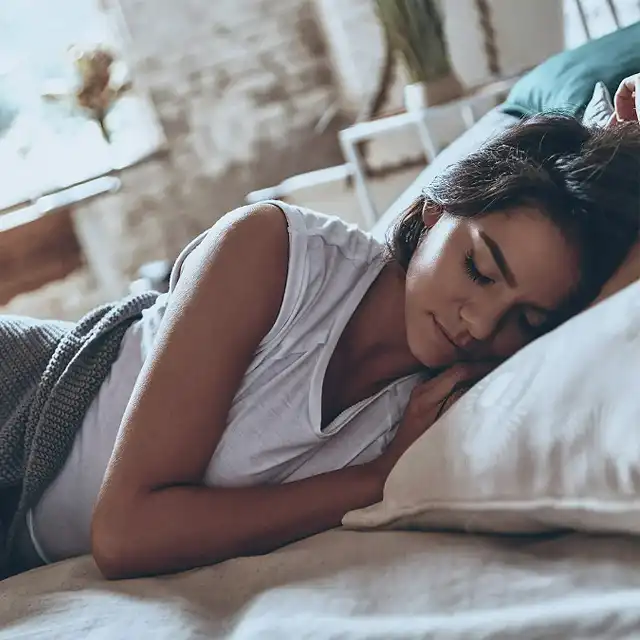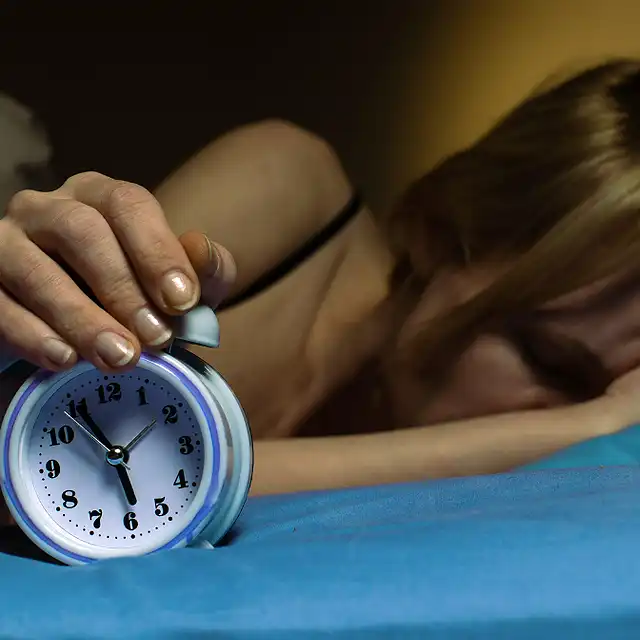Need help getting a good night’s sleep? Look no further! In this article, we’ll explore some effective tips and tricks to help you overcome those nights of tossing and turning. Say goodbye to counting sheep and hello to restful slumber. From relaxation techniques to creating a sleep-friendly environment, we’ve got you covered. So, if you’re tired of feeling tired, read on and discover how to improve the quality of your sleep. You’ll wake up feeling rejuvenated and ready to take on the day!
Have you ever found yourself wide awake in the middle of the night, unable to drift off? We’ve all been there. That’s why we’re here to share some valuable insights that can make a world of difference when it comes to sleeping soundly. From natural remedies to lifestyle adjustments, we’ll guide you through various strategies that can help you fall asleep faster and stay snoozing throughout the night. So, if you’re ready to bid farewell to those restless nights, keep reading, because better sleep is just around the corner.
Understanding the Importance of Sleep
The role of sleep in overall health
Sleep is not just a luxury or a way to pass the time; it plays a vital role in maintaining our overall health and well-being. When we sleep, our bodies go through various processes that help restore and renew our physical and mental health. Sleep is essential for the proper functioning of our immune system, as it helps to fight off infections and diseases. Lack of sufficient sleep can weaken our immune system, making us more susceptible to illnesses.
In addition to its impact on the immune system, sleep also plays a crucial role in supporting brain function. While we sleep, our brains consolidate and organize information, which enhances our cognitive abilities such as memory, attention, and problem-solving skills. Getting enough sleep can also improve our mood and emotional well-being, allowing us to better cope with stress and regulate our emotions.

Common consequences of sleep deprivation
Unfortunately, many people today suffer from sleep deprivation, which occurs when we consistently fail to get the recommended amount of sleep. Sleep deprivation can have numerous negative effects on both our physical and mental health.
One common consequence of sleep deprivation is daytime fatigue and decreased energy levels. This can significantly impact our productivity and ability to function optimally throughout the day. Sleep-deprived individuals may find it challenging to concentrate, make decisions, and remember important information.
Sleep deprivation also increases the risk of accidents and injuries. When we are tired, our reaction times slow down, and our judgment becomes impaired. This can be especially dangerous when engaging in activities that require alertness, such as driving or operating heavy machinery.
Moreover, insufficient sleep can negatively affect our mood and emotional well-being. It can contribute to feelings of irritability, mood swings, and increased susceptibility to stress and anxiety. Lack of sleep can also impair our judgment and make it difficult to regulate our emotions effectively.
Identifying the Causes of Sleep Troubles
Stress and anxiety
One of the primary causes of sleep troubles is stress and anxiety. When we are overwhelmed by stress, our bodies release stress hormones, such as cortisol, that can interfere with our ability to fall asleep and stay asleep. Intense emotions, racing thoughts, and worries can keep our minds active, making it difficult to relax and drift off into sleep.
To address stress and anxiety-related sleep troubles, it can be helpful to practice stress management techniques during the day. This may include engaging in activities like yoga or meditation, journaling, or talking to a trusted friend or therapist. Creating a relaxing bedtime routine that incorporates these stress-reducing activities can help calm the mind and promote better sleep.
Poor sleep habits
Another common cause of sleep troubles is poor sleep habits. Irregular sleep schedules, excessive napping, and inconsistent bedtime routines can disrupt our body’s internal clock, making it harder to fall asleep at night. Additionally, engaging in stimulating activities close to bedtime, such as using electronic devices, can interfere with our ability to unwind and prepare for sleep.
Establishing a consistent sleep schedule is crucial for improving sleep quality. Going to bed and waking up at the same time every day helps regulate our body’s internal clock and promotes a more restful sleep. It’s also important to create a relaxing bedtime routine that includes activities like reading a book, taking a warm bath, or listening to soothing music. By practicing these habits consistently, we can signal to our bodies that it’s time to wind down and prepare for sleep.

Medical conditions that disrupt sleep
Certain medical conditions can also disrupt sleep and contribute to sleep troubles. Conditions such as sleep apnea, restless leg syndrome, and chronic pain can significantly impact sleep quality and quantity. Sleep apnea, for example, is a sleep disorder characterized by pauses in breathing during sleep. These pauses can disrupt the sleep cycle and lead to daytime fatigue and other health issues.
If you suspect that a medical condition is causing your sleep troubles, it’s essential to consult with a healthcare professional. They can help diagnose and treat any underlying conditions that may be interfering with your sleep. Treating the medical condition can often lead to significant improvements in sleep quality and overall well-being.
Establishing a Relaxing Bedtime Routine
Creating a calming environment
Creating a calming environment in your bedroom is an essential step towards establishing a relaxing bedtime routine. Your bedroom should be quiet, dark, and cool. Consider investing in blackout curtains, earplugs, or a white noise machine to block out any disruptive sounds or lights that may disturb your sleep.
It’s also important to ensure that your mattress and pillow are comfortable and supportive. An uncomfortable sleep surface can lead to tossing and turning, which can interfere with your ability to fall asleep and stay asleep. Take the time to find a mattress and pillow that suit your preferences and provide the necessary support for a good night’s sleep.
Avoiding stimulating activities before bed
Engaging in stimulating activities close to bedtime can make it more difficult to relax and unwind. It’s important to avoid activities that can keep your mind and body alert, such as exercising vigorously, consuming caffeine, or using electronic devices.
Instead, incorporate calming activities into your evening routine. This might include reading a book, taking a warm bath, or practicing relaxation techniques such as deep breathing or progressive muscle relaxation. By avoiding stimulating activities and replacing them with calming ones, you can help signal to your body that it’s time to wind down and prepare for sleep.
Practicing relaxation techniques
Relaxation techniques can be incredibly beneficial in promoting a calm and relaxed state of mind before bed. Deep breathing exercises, for example, can help slow down your heart rate and activate the body’s relaxation response. Simply find a comfortable position, close your eyes, and take slow, deep breaths, focusing on the sensation of the breath entering and leaving your body.
Another relaxation technique to try is progressive muscle relaxation. This involves tensing and then releasing each muscle group in your body, starting from your toes and working your way up to your head. By consciously relaxing your muscles, you can release tension and promote a sense of relaxation throughout your body.
Improving Sleep Environment
Choosing a comfortable mattress and pillow
The quality of your mattress and pillow can significantly impact the quality of your sleep. It’s worth investing in a mattress and pillow that suit your preferred sleep position and provide adequate support for your body. The right mattress and pillow should help maintain proper spinal alignment and relieve pressure points, allowing you to sleep comfortably throughout the night.
When choosing a mattress, consider factors such as firmness, material, and breathability. Everyone’s preferences are unique, so take the time to test different options and find the one that best suits your needs. Similarly, pillow selection should be based on your specific sleep position and preferences, whether you sleep on your side, back, or stomach.
Controlling room temperature and lighting
The temperature and lighting in your bedroom can significantly affect your sleep quality. Ideally, your bedroom should be kept cool, between 60 to 67 degrees Fahrenheit, to promote a more restful sleep. It’s important to find a temperature that feels comfortable to you, as personal preferences can vary.
Lighting also plays a crucial role in promoting a sleep-conducive environment. Exposure to bright light before bed can suppress the production of melatonin, a hormone that regulates sleep-wake cycles. Consider using blackout curtains or wearing an eye mask to block out any external light sources that may interfere with your sleep.
Reducing noise levels
Excessive noise can disrupt your sleep and prevent you from achieving a deep, restorative rest. It’s important to create a quiet sleeping environment that minimizes or eliminates any disruptive noises. If you live in a noisy area, consider using earplugs or a white noise machine to drown out unwanted sounds.
White noise, such as the sound of a fan or a white noise app, can help mask other noises and provide a consistent background sound that can promote better sleep. Alternatively, you can use earplugs designed for sleep to block out noise and create a quieter environment.
Managing Stress and Anxiety
Identifying stressors and finding coping mechanisms
Stress and anxiety can have a significant impact on our sleep quality. It’s important to identify the sources of stress in our lives and develop healthy coping mechanisms to manage them effectively. This might involve making a list of the stressors in your life and brainstorming ways to address or minimize their impact.
Coping mechanisms can vary from person to person, but some common strategies include engaging in physical activity, practicing mindfulness or meditation, spending time in nature, or engaging in hobbies or activities you enjoy. By finding healthy outlets for stress, you can create a sense of calm and relaxation, which can positively impact your sleep.
Incorporating stress-reducing activities into daily routine
Instead of waiting until bedtime to manage stress and anxiety, incorporate stress-reducing activities into your daily routine. Engaging in regular exercise is an excellent way to relieve stress and promote better sleep. Physical activity helps release endorphins, our body’s natural mood-boosting chemicals, which can reduce anxiety and improve sleep quality.
Additionally, practicing mindfulness or meditation can help calm the mind and promote a sense of relaxation. Carving out a few minutes each day to engage in these activities can have a cumulative effect, reducing overall stress levels and aiding in better sleep.
Seeking professional help if needed
If stress and anxiety persist or significantly impact your daily life and sleep, it may be beneficial to seek professional help. Mental health professionals, such as therapists or counselors, can provide guidance and support in managing stress and anxiety. They can help you develop personalized coping strategies and address any underlying issues that may be contributing to your sleep troubles.
Remember, seeking professional help is a sign of strength, and there is no shame in asking for support when needed. A trained professional can help guide you towards healthier sleep patterns and provide valuable insights into managing your stress and anxiety levels.

Enhancing Sleep Quality with Exercise
Choosing appropriate exercise types and timing
Regular exercise can have a positive impact on sleep quality, but it’s essential to choose the right types of exercise and time them appropriately. Engaging in vigorous exercise close to bedtime can actually energize the body and make it more difficult to fall asleep. It’s generally recommended to avoid intense exercise within a few hours of bedtime.
Instead, consider incorporating regular physical activity into your daily routine. Aim for at least 30 minutes of moderate-intensity exercise most days of the week. Examples of moderate-intensity exercises include brisk walking, cycling, swimming, or dancing. Regular physical activity can promote better sleep by reducing stress and anxiety, tiring the body, and regulating sleep-wake cycles.
The impact of physical activity on sleep
Exercise has been shown to have numerous benefits for sleep. Regular physical activity can help regulate circadian rhythms, the natural internal processes that regulate our sleep-wake cycles. By promoting a more regular sleep-wake schedule, exercise can enhance sleep quality and help us fall asleep more easily.
Exercise also helps to reduce anxiety and stress, which can interfere with sleep. Physical activity releases endorphins, which are known as “feel-good” chemicals that can enhance mood, reduce anxiety, and promote relaxation. By addressing these common barriers to sleep, exercise can contribute to more restful and rejuvenating sleep.
Creating an exercise routine for better sleep
To reap the sleep benefits of exercise, it’s important to establish a consistent exercise routine. Find activities that you enjoy and that fit into your lifestyle. Consider scheduling your workouts earlier in the day, if possible, to allow your body ample time to wind down and relax before bedtime.
Experiment with different types of exercise to find what works best for you. Some individuals find that yoga or gentle stretching before bed can promote relaxation and prepare the body for sleep. Others prefer cardiovascular activities in the morning or early afternoon to boost energy levels during the day and promote a deeper sleep at night.

Exploring Natural Remedies for Sleep
Herbal supplements and teas
Many herbal supplements and teas are believed to promote better sleep and relaxation. They often contain natural ingredients that have calming properties and can help induce sleep. Chamomile tea, for example, has long been used as a sleep aid due to its mild sedative effects. Other herbs commonly used to promote sleep include valerian root, lavender, and passionflower.
It’s important to note that while herbal supplements and teas can be helpful for some individuals, their effectiveness can vary. It’s a good idea to consult with a healthcare professional or a licensed herbalist to ensure that the herbal remedies you choose are safe and suitable for you. They can provide guidance on proper dosages and potential interactions with any medications you may be taking.
Aromatherapy and essential oils
Aromatherapy involves using essential oils derived from plants to promote relaxation and improve sleep quality. Certain essential oils, such as lavender, chamomile, and ylang-ylang, are known for their calming properties and can help create a soothing bedtime environment. You can use essential oils by diffusing them in a room, applying them topically, or adding a few drops to a warm bath.
When using essential oils, it’s important to follow proper guidelines and dilute them appropriately. Some essential oils can be irritating to the skin if applied directly, so always perform a patch test first. Additionally, be aware of any potential allergies or sensitivities you may have to specific scents or oils.
Relaxing music and white noise
Listening to relaxing music or white noise can be an effective way to create a soothing environment that promotes sleep. Soft, calming music or nature sounds can help drown out external noise and create a sense of tranquility. White noise, such as the sound of rain or a fan, can also help mask disruptive sounds and promote a more restful sleep.
Experiment with different types of music or sounds to find what works best for you. Some individuals find instrumental music or classical compositions to be particularly relaxing, while others prefer nature sounds or recordings specifically designed for sleep. Try incorporating these sounds into your bedtime routine to signal to your body that it’s time to unwind and prepare for sleep.
Avoiding Sleep Disruptors
Caffeine and its effects on sleep
Caffeine is a stimulant that can interfere with sleep quality and duration. It’s important to be mindful of your caffeine intake, particularly in the afternoon and evening, to ensure it doesn’t disrupt your sleep. Consuming caffeine too close to bedtime can make it difficult to fall asleep and may decrease the overall quality of your sleep.
As a general guideline, it’s best to avoid or limit caffeine consumption at least four to six hours before bedtime. Be aware that caffeine is not only found in coffee but also in tea, soft drinks, chocolate, and some medications. Reading labels and being aware of hidden sources of caffeine can help you make conscious choices that support better sleep.

Alcohol and its impact on sleep quality
While alcohol may initially make you feel drowsy or relaxed, it can have a negative impact on sleep quality. Alcohol can disrupt the natural sleep cycle, leading to more fragmented and less restorative sleep. It can also worsen certain sleep disorders, such as sleep apnea.
If you choose to consume alcohol, it’s important to do so in moderation and be mindful of its effects on your sleep. Consider avoiding alcohol within a few hours of bedtime to allow your body time to metabolize it before sleep. It’s also important to stay hydrated, as alcohol can contribute to dehydration, which can further disrupt sleep.
Electronic devices and blue light exposure
The use of electronic devices, such as smartphones, tablets, and computers, before bed can interfere with sleep. These devices emit blue light, which can suppress the production of melatonin, the hormone that regulates sleep. The blue light can trick our brains into thinking it’s still daytime, making it more difficult to fall asleep.
To minimize the impact of blue light on sleep, it’s best to limit the use of electronic devices in the evening, ideally at least one to two hours before bedtime. Consider establishing a “screen curfew” and replacing electronic device usage with relaxing activities, such as reading a book or engaging in a calming hobby.
If you must use electronic devices before bed, many devices now have settings or apps that allow you to reduce the amount of blue light emitted. These settings typically filter out blue light or shift the screen’s colors to warmer tones. By adjusting these settings, you can minimize the disruption to your sleep-wake cycle.
Seeking Professional Help
When to consult a sleep specialist
If despite your best efforts, you continue to experience sleep troubles that significantly impact your quality of life, it may be beneficial to consult a sleep specialist. Sleep specialists are healthcare professionals who specialize in diagnosing and treating sleep disorders. They can help identify the underlying cause of your sleep troubles and develop a personalized treatment plan.
Some signs that may indicate the need for a sleep specialist include persistent difficulty falling or staying asleep, excessive daytime sleepiness, loud snoring, episodes of gasping or choking during sleep, and frequent or disruptive nightmares. If you suspect you may have a sleep disorder or if your sleep troubles persist despite implementing healthy sleep habits, it’s important to seek professional guidance.
Types of medical interventions for sleep troubles
Sleep specialists employ various medical interventions to help individuals improve their sleep. These interventions may range from lifestyle modifications and behavioral therapies to medical treatments, depending on the underlying cause of the sleep troubles.
Behavioral therapies, such as cognitive-behavioral therapy for insomnia (CBT-I), can help address the underlying thought patterns and behaviors that contribute to sleep difficulties. CBT-I focuses on changing unhealthy sleep habits and developing effective strategies to manage stress and anxiety related to sleep.
In some cases, medications may be prescribed to help manage sleep disorders or alleviate specific symptoms. These medications can vary depending on the sleep disorder and individual needs. It’s important to work closely with a healthcare professional to determine the most appropriate medication and dosage for your situation, as well as to monitor for any potential side effects.
Commonly prescribed sleep aids
Sleep aids or medications are sometimes used to help manage sleep troubles. These medications can be helpful for short-term use or for specific sleep-related conditions but should be used under the guidance of a healthcare professional. Commonly prescribed sleep aids include benzodiazepines, non-benzodiazepine sedatives, and melatonin receptor agonists. The specific medication recommended will depend on the individual’s needs and the underlying cause of the sleep troubles.
It’s important to note that sleep aids should not be a long-term solution, as they may have side effects and can become habit-forming. They should be used in conjunction with other non-drug interventions, such as improving sleep hygiene and addressing underlying lifestyle factors that may be contributing to sleep troubles.
Conclusion
Sleep is an essential component of our overall health and well-being. Adequate and restful sleep allows our bodies to repair and rejuvenate, supporting our immune system, brain function, and emotional well-being. Unfortunately, many factors can disrupt our sleep, such as stress, poor sleep habits, medical conditions, and lifestyle choices.
Establishing a relaxing bedtime routine, improving the sleep environment, managing stress and anxiety, incorporating regular physical activity, and exploring natural remedies can all contribute to better sleep. By identifying the causes of sleep troubles and implementing strategies to address them, you can improve your sleep quality and overall well-being.
If sleep troubles persist or significantly impact your daily life, it’s important to seek professional help. Sleep specialists can provide guidance, diagnose underlying sleep disorders, and develop personalized treatment plans. With the right support and interventions, you can achieve restful and rejuvenating sleep that allows you to wake up feeling refreshed and ready to tackle the day ahead.